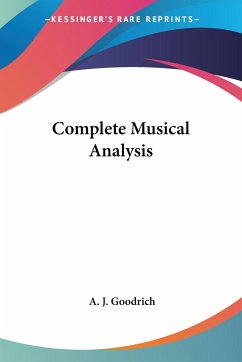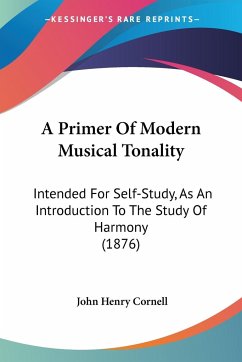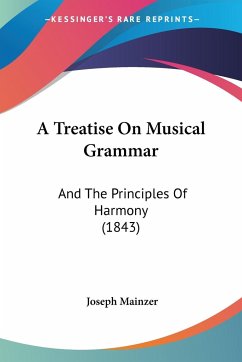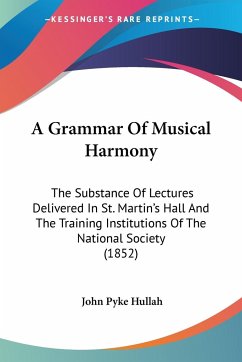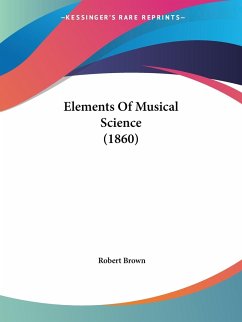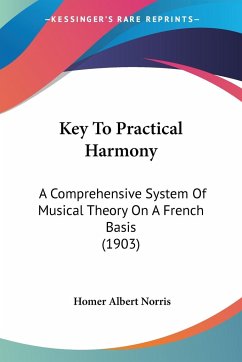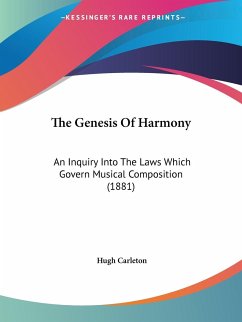A Complete Musical Analysis by A. J. Goodrich is a comprehensive guide to the analysis of music. The book covers a wide range of musical genres, including classical, jazz, and popular music. It provides a detailed overview of the elements of music, such as melody, harmony, rhythm, and form, and explains how these elements work together to create a cohesive musical composition.The book is organized into chapters that focus on specific aspects of music analysis, such as tonality, modality, and chromaticism. Each chapter includes examples of musical compositions that illustrate the concepts being discussed, along with exercises that allow readers to practice their analytical skills.In addition to its focus on music theory and analysis, the book also explores the historical and cultural contexts in which music is created and performed. It discusses the social and political influences that have shaped different musical traditions and styles, and examines the ways in which music reflects and responds to changes in society.Overall, A Complete Musical Analysis is an essential resource for anyone interested in understanding and analyzing music. It provides a thorough and accessible introduction to the principles of music theory and analysis, while also offering insights into the cultural and historical contexts that shape musical expression.1889. The author proffers a system designed to cultivate the art of analyzing and criticizing and to assist in the performance and understanding of the works of the great composers of different epochs. Goodrich instructs teachers that: Attention is first called to the twofold character of this book. The auricular exercises go hand in hand with the numerous bits and scraps of information which are necessary to the proper enjoyment or performance of music, and to the analysis of compositions away from the instrument. The mere act of hearing music will not cultivate the art of listening. Even pupils who are technically well advanced will, as a rule, require systematic practice in listening to single tones, different kinds of rhythm, chord combinations, etc. When a preliminary exercise is played the class must know whether they are to apprehend the distance of the intervals, or the value of the notes. Otherwise the ear received but little benefit, because the mind does not cooperate. The lessons must penetrate beyond the auricle, and to the vestibule. Goodrich presents a well-organized approach to developing a musician's listening abilities.This scarce antiquarian book is a facsimile reprint of the old original and may contain some imperfections such as library marks and notations. Because we believe this work is culturally important, we have made it available as part of our commitment for protecting, preserving, and promoting the world's literature in affordable, high quality, modern editions, that are true to their original work.
Hinweis: Dieser Artikel kann nur an eine deutsche Lieferadresse ausgeliefert werden.
Hinweis: Dieser Artikel kann nur an eine deutsche Lieferadresse ausgeliefert werden.

